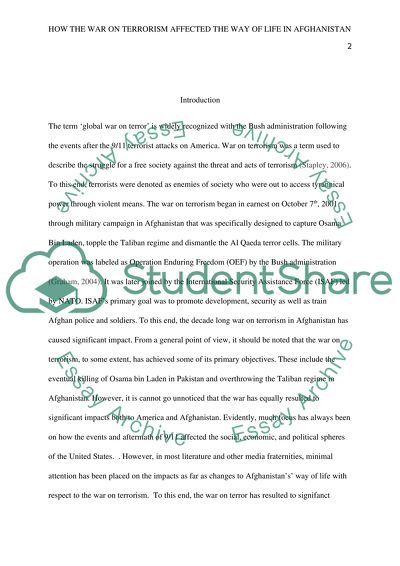Cite this document
(“How the war on terrorism affected the way of life in Afghanistan Research Paper”, n.d.)
Retrieved from https://studentshare.org/history/1472676-how-the-war-on-terrorism-affected-the-way-of-life
Retrieved from https://studentshare.org/history/1472676-how-the-war-on-terrorism-affected-the-way-of-life
(How the War on Terrorism Affected the Way of Life in Afghanistan Research Paper)
https://studentshare.org/history/1472676-how-the-war-on-terrorism-affected-the-way-of-life.
https://studentshare.org/history/1472676-how-the-war-on-terrorism-affected-the-way-of-life.
“How the War on Terrorism Affected the Way of Life in Afghanistan Research Paper”, n.d. https://studentshare.org/history/1472676-how-the-war-on-terrorism-affected-the-way-of-life.


